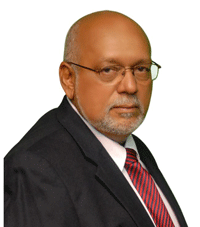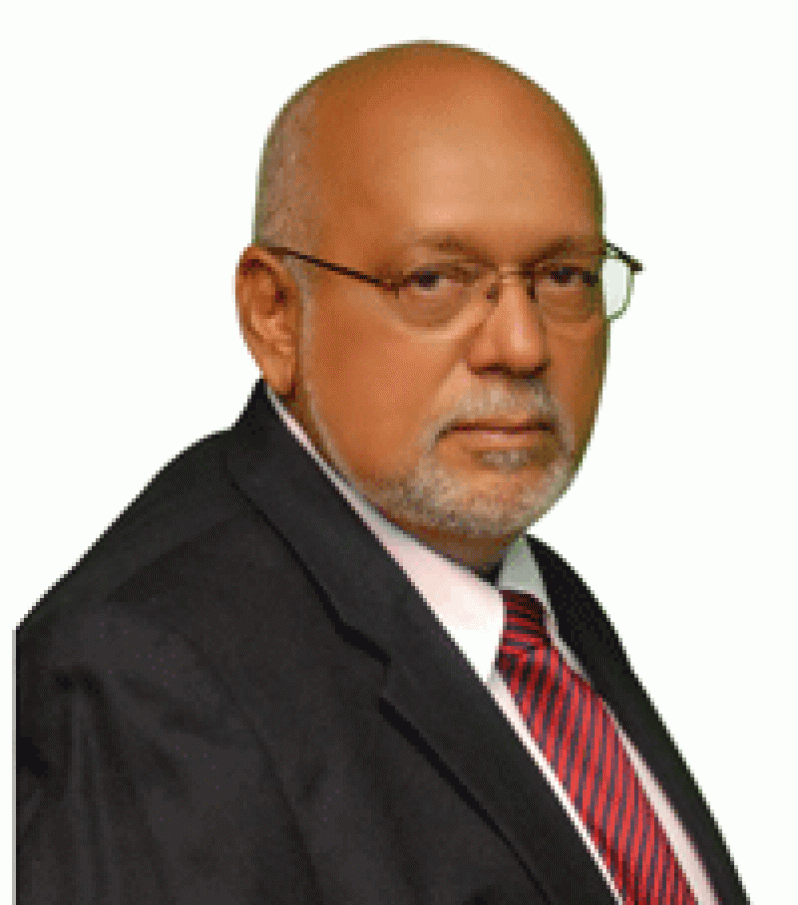– tailor-made for the working-class
PRESIDENT Donald Ramotar is convinced that the just-presented National Budget is people-oriented, in that all strata of society, particularly those of the working class, can hope to find something beneficial in it for them.
“From this budget…fundamentally, a lot of people at the working-class level …workers and farmers, will see their  conditions improve in a very big way…,” he said during an interview late yesterday at his suite of offices on Shiv Chanderpaul Drive.
conditions improve in a very big way…,” he said during an interview late yesterday at his suite of offices on Shiv Chanderpaul Drive.
“One of the highlights of the budget,” he said, “was the fact that we have now a threshold that has increased to $50,000 per month, which is a 25% increase over last year’s $40,000… That is a huge increase in the first instance, which will take a lot of people out from paying taxes; they will now have a hefty increase in their disposable income.”
Just Friday, Finance Minister, Dr. Ashni Singh presented to the National Assembly a whopping $192.8B budget under the theme: ‘Remaining on course: United in purpose, prosperity for all’.
Noting that over the last five or six years, the threshold size has doubled, the President said income tax allowance will now be increased to $600,000 annually, and that as a result of this, every taxpayer will benefit from higher take-home pay.
In addition, 21,000 people will be removed from the income tax net, and over $3B of additional disposable income will be placed in the hands of beneficiaries.
“If you go back further to 1992, it was $4000 a month; today it is $50,000 per month…That is a huge step in the right direction; giving more disposable income to working people generally,” the President said.
He also cited other major initiatives in the budget that will help out other sections of society.
“The old age pension has gone up from $7,500 to $8,100 a month; that will see someone who reaches the pensionable age receiving that amount automatically, without proving that there is no other source of income,” President Ramotar said.
Noting that the right to pension was not as automatic as it now is under the PPP/C administration, he said: “More than $1B is also going to social security, which will benefit our people who find themselves in temporary difficulties of which government can help them find a way out of these difficult circumstances.”
Social Service investments
Contending that the major social service investments seen in the 2012 budget hark back to the philosophy of the PPP/C Administration, the President said:
“We believe that economic growth must serve the people…All our activities that we are involved in have one purpose, which is to serve people and make their lives better. That is why we have been concentrating a lot of our spending on the social sector… We have gone a far way in education as we have invested a lot, and we will invest more… We have started orienting it more and more to serve the society; that is why we are getting more technical institutes so that we can develop more skilled labour in our society to service what we perceive to be a highly developed mechanised type of country.”
Not only are efforts concentrated on the school system as such, but even outside via the Ministry of Labour’s National Training Programme for Youth Empowerment that trains youths who would have dropped out of school to give them skills that an industrial society would need.
Education investments
For 2012, $26.5B has been allocated for the education sector, with over $1B proposed for the National Hinterland School Feeding Programme. The school uniform programme is to be continued as well.
“For a lot of the school feeding programmes in the interior we try as much to buy our products from the people in the community themselves, which has a stimulating effect on the village economies…for example, the Rupununi produces a lot of peanuts and have been looking for markets…a lot of that production is going to peanut butter which sells in the community…they have even modified the cassava bread to cassava biscuits…they also produce fruit juices…it is not only good for the children but it has a very positive impact on the village economy and we can see these villages being transformed which impacts the region and the country on a whole,” the Head of State said.
Additionally, he believes that, whilst there are some challenges at the country’s highest academic institution – the University of Guyana- government will be working hard to ensure that its product would be better to serve at a high level, as very soon the country will join the club of producers of oil and gas, therefore $900M was allocated to the institution to develop such skills.
One of the key initiatives of the education sector relates to improving teacher quality by strengthening the institutions involved, and upgrading the training programmes offered.
Over 1.2B has been allotted towards teacher training and includes the provision for operational expenditure of the Cyril Potter College of Education (CPCE) which is expected to produce 430 graduates from the Associate Degree in Education Programme in November 2012, while 800 students will complete the Trained Teacher Certificate Programme in July of this year.
More than $3.3B has been allocated to continued construction, extension, rehabilitation and maintenance of schools and other educational facilities countrywide, including the construction of the Turkeyen nursery school, the extension of the Parika Salem secondary school, and Waramadong dormitory and teaching block. In addition, works are to be done on LBI, St. Pius and Diamond primary schools, Leonora secondary school and dormitories at Charity and Sand Creek secondary schools.












